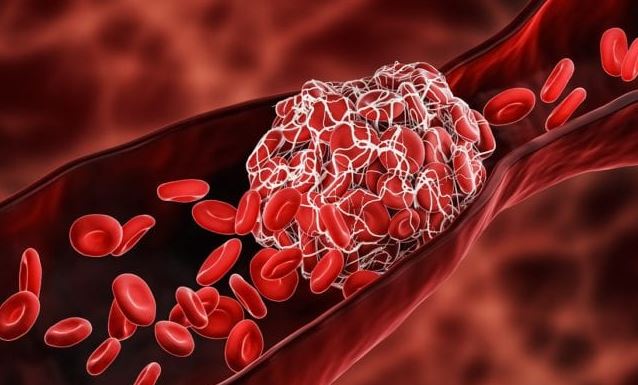 Parler
Parler Gab
Gab
South Korean researchers find a spike in blood disorders in vaccinated populations
The team of researchers found a spectrum of non-fatal, immune-related adverse events following COVID-19 vaccination in a population-based cohort study in Seoul, South Korea. After examining data from the Korean National Health Insurance Service, the team of researchers, led Eun Mi Chun, MD, PhD., found out that people who receive a COVID-19 vaccines are more likely to suffer from menstrual disorders, inner and middle ear diseases, tinnitus and aplastic anemia. For the purposes of the study, a “vaccinated person” was classified as someone who received their second dose or completed a primary series of vaccination before September 30, 2021. An “unvaccinated person” was classified as someone who received no doses of the COVID-19 vaccine. The study excluded individuals if they only received one dose or if they already had one of the health conditions examined in the study. The study included all people registered in the Korean National Health Insurance Service who were at least 20 years old. This criterion encompassed approximately 1.4 million “lab rats” in the “vaccinated” group and 289,576 individuals in the “unvaccinated” group. The study results were skewed by the omission of individuals who received one dose of the vaccine. Many of these people stopped vaccinating because they were injured after that first shot. If they were included in the study, then the incidence of reported health issues in the vaccinated would likely be greater. In the study, the researchers measured the cumulative incidence rates of adverse events in both populations by examining new diagnoses. Three months after vaccination, every non-fatal adverse event studied (except for visual impairment and endometriosis) were higher for the vaccinated cohort. Other eye problems, including glaucoma and vision loss, were still higher in the vaccinated group. Other issues that were higher for the vaccinated included warts, herpes zoster, periodontal diseases and hair loss. "The findings of this study suggest that clinicians should maintain closed observation of a range of nonfatal irAEs after vaccination, given that these manifestations might emerge post-vaccination," the researchers concluded. The most concerning issue the researchers discovered in the vaccinated cohort were new blood disorders and other hematologic abnormalities, including aplastic anemia. This rare condition renders a person unable to produce an adequate supply of new blood cells. The rise in aplastic anemia also correlated with a rise in nutritional anemia and coagulation defects.COVID-19 vaccines also linked to rise in musculoskeletal issues
Appalled by the results of their first analysis, the researchers went a step further and looked into another category of adverse health events. In a follow-up preprint paper, the researchers examined the incidence of inflammatory musculoskeletal disorders among the vaccinated and unvaccinated. It turns out that the vaccinated cohort also suffers from a higher incidence of plantar fasciitis, bursitis and Achilles tendinitis. "Individuals who received COVID-19 vaccines, either mRNA, viral vector, or mixing and matching, were found to be more likely to be diagnosed with inflammatory musculoskeletal disorders compared to those who did not," the researchers said. Dr. Chun and his team conducted this research without any outside funding and therefore reported no conflicts of interest. Sources include: TheEpochTimes.com MedRXIV.org [PDF] MedRXIV.org [PDF] MedRXIV.org [PDF]“Perfectly healthy” baby DIES two days after receiving routine childhood vaccines
By Ethan Huff // Share
Canadian journalist who pushed for CONCENTRATION CAMPS for the unvaccinated has died at 33
By Arsenio Toledo // Share
These three science experiments confirm gold mass recovery, purity of Goldbacks
By Ethan Huff // Share
Governments continue to obscure COVID-19 vaccine data amid rising concerns over excess deaths
By patricklewis // Share
Tech giant Microsoft backs EXTINCTION with its support of carbon capture programs
By ramontomeydw // Share
Germany to resume arms exports to Israel despite repeated ceasefire violations
By isabelle // Share










